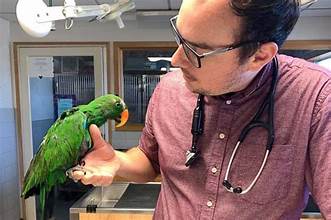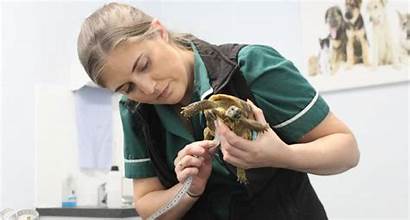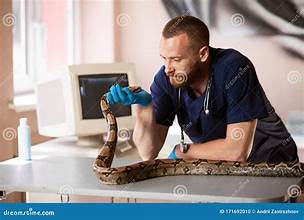Exotic pets, such as reptiles, birds, and small mammals, bring unique joys to our lives with their fascinating behaviors and beautiful appearances. However, their specific needs and delicate nature mean that emergencies can arise unexpectedly. Being prepared can make a crucial difference in the outcome.
Recognizing an Emergency:
- Sudden Changes in Behavior:
Lethargy, aggression, hiding excessively, or refusing food and water are red flags.
- Respiratory Issues:
Difficulty breathing, wheezing, open-mouth breathing, or unusual noises.
- Digestive Problems:
Diarrhea, constipation, vomiting, or blood in the stool or urine.
- Trauma:
Injuries from falls, bites, or other accidents.
- Temperature Extremes:
Overheating or hypothermia can be life-threatening.
What to Do in an Emergency:
- Assess the Situation:
Calmly observe your pet. Note any specific symptoms and when they began.
- Contact Your Veterinarian:
Explain the situation clearly and concisely. They can provide initial guidance or direct you to the nearest emergency clinic.

- Prepare for Transport:
Have a secure carrier ready. If your pet is small, a towel or box can work.
- Keep Your Pet Warm or Cool:
Use a heating pad (low setting) or a cool compress, depending on the situation.
- Avoid Unnecessary Handling:
Stress can worsen the situation. Minimize handling unless necessary.
Finding an Exotic Pet Specialist:
Emergencies often require specialized care.
- Ask Your Regular Veterinarian:
They may have recommendations for experienced exotic pet vets.
- Online Resources:
Websites like the Association of Avian Veterinarians and the American College of Zoological Medicine can help you locate specialists.
Prevention is Key:
- Regular Checkups:
Regular checkups with an exotic pet vet are key to responsible pet ownership. They allow you to monitor your pet’s health and catch any potential issues early.

- Proper Housing and Environment:
Ensure appropriate temperature, humidity, and lighting.
- Safe Diet and Water:
Provide a species-specific diet and clean water sources.
- Emergency Kit:
Have a basic first-aid kit, including appropriate medications (if prescribed), rehydration fluids, and heating/cooling sources.
Important Note:
This information is for general guidance only. Always consult a qualified veterinarian for specific advice regarding your pet’s health.
By being prepared and knowing the signs of an emergency, you can help ensure the best possible outcome for your beloved exotic pet.




